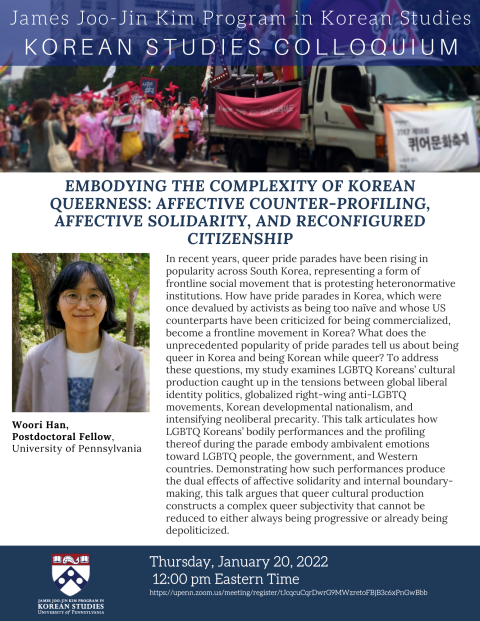
Korean Studies Colloquium
Via Zoom
In recent years, queer pride parades have been rising in popularity across South Korea, representing a form of frontline social movement that is protesting heteronormative institutions. How have pride parades in Korea, which were once devalued by activists as being too naïve and whose US counterparts have been criticized for being commercialized, become a frontline movement in Korea? What does the unprecedented popularity of pride parades tell us about being queer in Korea and being Korean while queer? To address these questions, my study examines LGBTQ Koreans’ cultural production caught up in the tensions between global liberal identity politics, globalized right-wing anti-LGBTQ movements, Korean developmental nationalism, and intensifying neoliberal precarity. This talk articulates how LGBTQ Koreans’ bodily performances and the profiling thereof during the parade embody ambivalent emotions toward LGBTQ people, the government, and Western countries. Demonstrating how such performances produce the dual effects of affective solidarity and internal boundary-making, this talk argues that queer cultural production constructs a complex queer subjectivity that cannot be reduced to either always being progressive or already being depoliticized.
Woori Han is a Postdoctoral Fellow in the Center for Advanced Research in Global Communication and the Center on Digital Culture and Society at the University of Pennsylvania. Her research focuses on cultural production, affective citizenship, digital activism, and queer/feminist movements. Her research has been published in venues including Korea Journal, Communication, Culture & Critique, and Media, Culture & Society.
 James Joo-Jin Kim Center for Korean Studies
James Joo-Jin Kim Center for Korean Studies